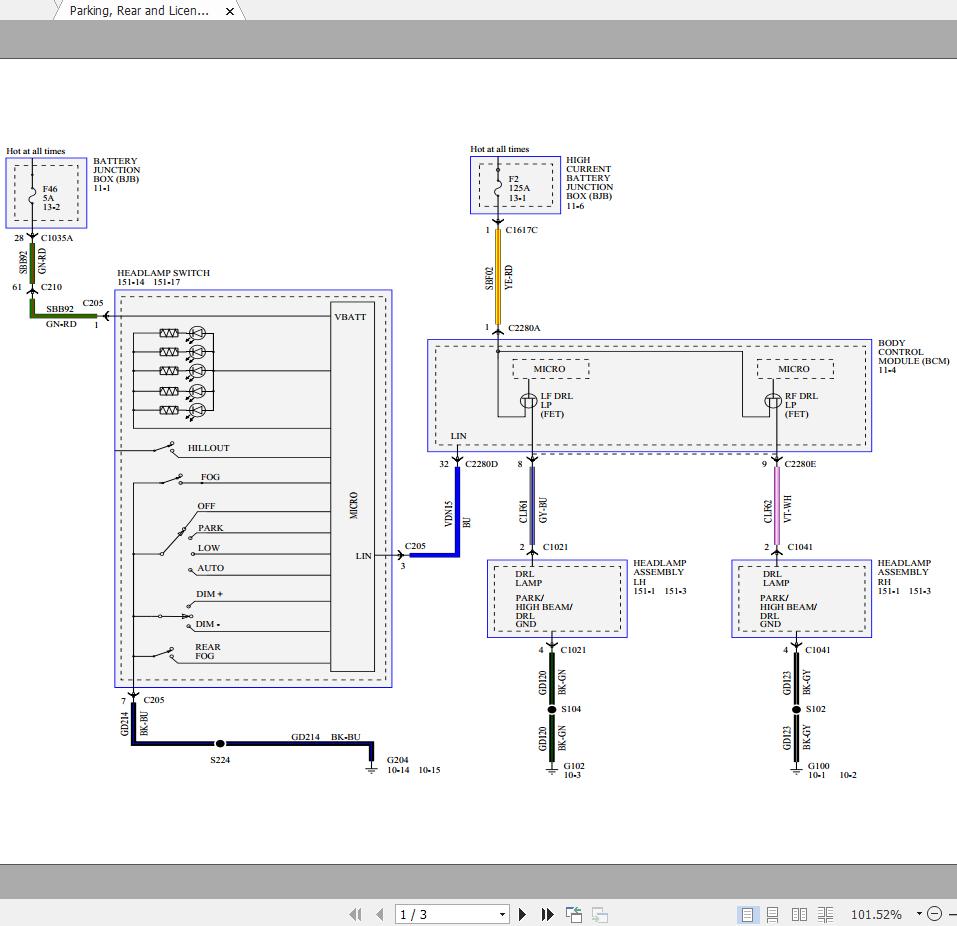When it comes to maintaining and repairing the electrical systems of your Ford Fiesta, having access to a reliable wiring diagram is essential. In this article, we will discuss the importance of Ford Fiesta Rear Light Wiring Diagram, how to read and interpret them effectively, and how they can be used for troubleshooting electrical problems.
Why Ford Fiesta Rear Light Wiring Diagram are Essential
Understanding the wiring diagram for your Ford Fiesta’s rear lights is crucial for several reasons:
- Helps identify the correct wires and connections
- Aids in diagnosing and repairing electrical issues
- Ensures proper installation of new components
- Improves overall safety and functionality of the vehicle
How to Read and Interpret Ford Fiesta Rear Light Wiring Diagram
Reading and interpreting wiring diagrams may seem daunting at first, but with a little practice, you can become proficient in understanding them. Here are some tips to help you:
- Start by familiarizing yourself with the symbols and color codes used in the diagram
- Follow the flow of the wiring from the power source to the components
- Pay attention to the connection points and wire paths
- Refer to the legend or key for any symbols or abbreviations you are unsure of
Using Ford Fiesta Rear Light Wiring Diagram for Troubleshooting
When faced with electrical issues in your Ford Fiesta’s rear lights, a wiring diagram can be a valuable tool for troubleshooting. Here’s how you can use it effectively:
- Identify the specific circuit or component that is causing the problem
- Trace the wiring to find any breaks, shorts, or faulty connections
- Compare the diagram to the actual wiring to pinpoint the issue accurately
- Use a multimeter to test for continuity and voltage at various points in the circuit
Importance of Safety When Working with Electrical Systems
Working with electrical systems, including using wiring diagrams, can pose certain risks. To ensure your safety and prevent accidents, consider the following tips:
- Always disconnect the battery before working on any electrical components
- Use insulated tools to avoid electric shocks
- Avoid working on the vehicle in wet or damp conditions
- If you are unsure or uncomfortable with electrical work, seek professional assistance
Ford Fiesta Rear Light Wiring Diagram
Ford Fiesta Rear Light Wiring Diagram – Worksic

Ford Fiesta Rear Light Wiring Diagram – Worksic

Ford Fiesta 2017-2020 Electrical Wiring Diagrams | Auto Repair Manual

Ford Fiesta Rear Light Wiring Diagram – Worksic

How to Replace the rear light bulbs on the Ford Fiesta 2002 to 2008

AAMIDIS.blogspot.com: Ford Fiesta Rear Light Wiring Diagram
